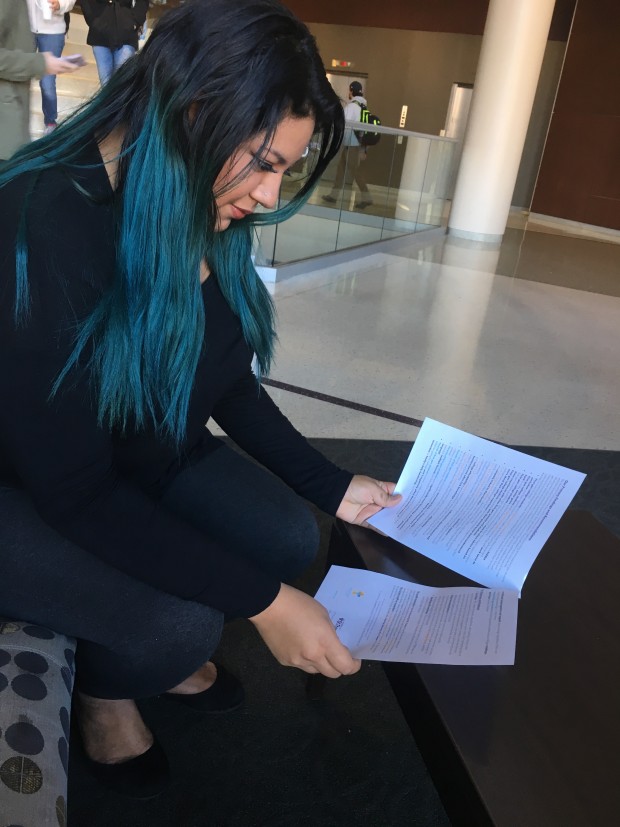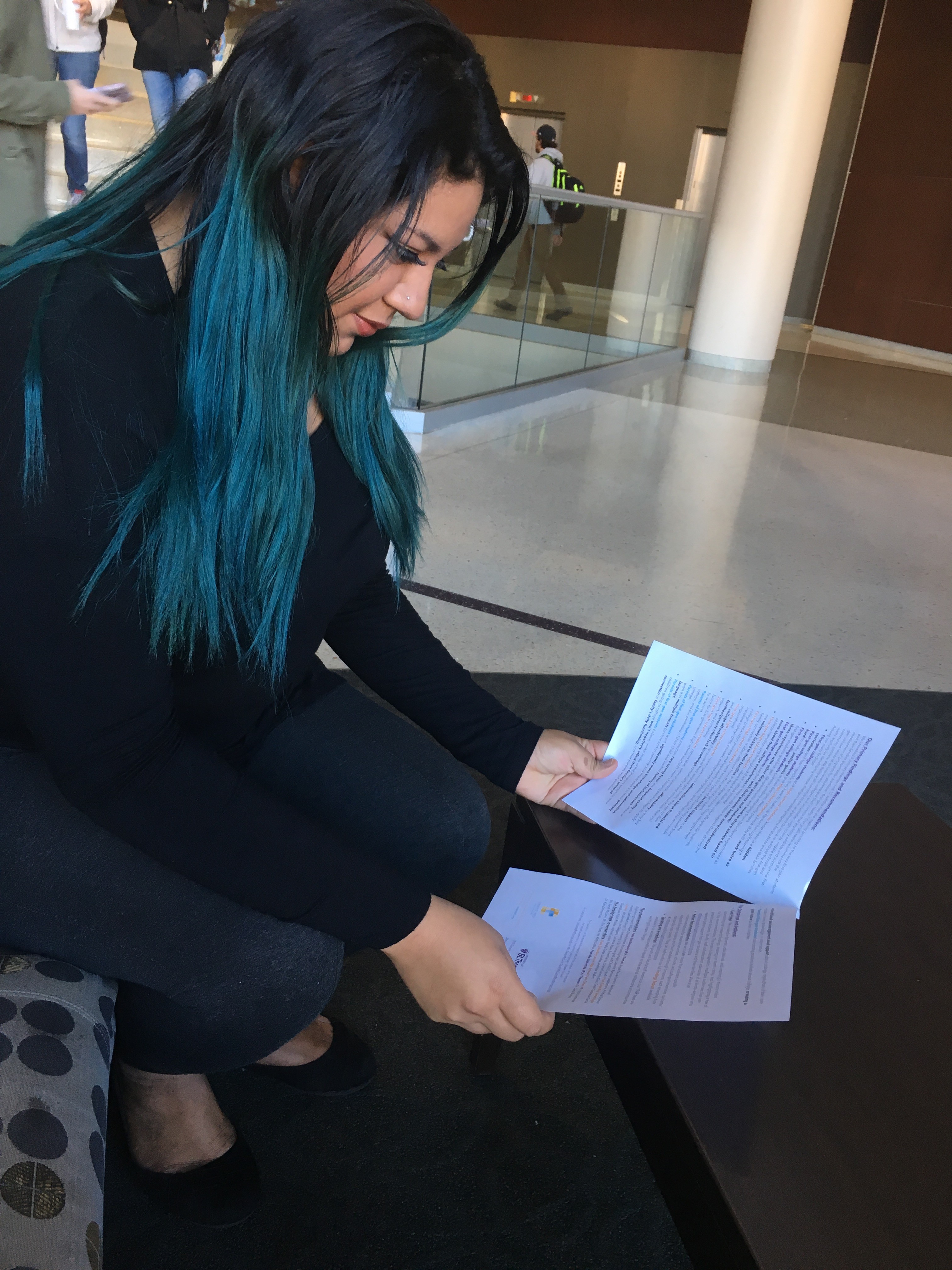
Sophomore Jennifer Ramirez reads over the information the research team collected. The team of researchers collected over 132 pages of interview data. (Lydia Lockwood/TommieMedia)
Thirty percent of all undergraduate students in the U.S. are the first in their family to attend college, putting them at a higher risk of dropping out, taking classes part time and not finishing their education in four years.
Some first-generation students from the University of St. Thomas and Cristo Rey Jesuit High School are working to change that reality, serving as the researchers in study of their peers.
In a research project called “Together Possible,” the team of youth researchers conducted a survey of 388 first-generation high school and college students of color and their families to study their experiences with applying and going to college.
They also conducted 25 in-depth interviews with people of color: 10 first-generation high school students, 10 first-generation college students and five parents of first-generation students.
Together Possible was backed by a $30,000 Youth Participatory Action Research grant.
“I am really committed to ensuring that students at St. Thomas who often feel marginalized or not supported have a chance to have their voices heard, and what better way than to do that through research,” said Carol Bruess, professor of communication and journalism and director of the family studies program.
Bruess and Kari Zimmerman, assistant professor of history, initiated Together Possible, but for Bruess the study has a personal connection.
“I am actually a first-generation college student myself, and so the topic of first-generation college obstacles and first-generation college student assets speaks to my own lived experience,” Bruess said.
The hope of the research was to make a difference for first-generation college students, not only at St. Thomas, but everywhere.
“I was excited about being part of an opportunity for a group of youth who are too often researched: first-generation college students of color,” Bruess said. “To find a new voice, through research – ultimately their research – and what they were able to learn through the process was incredible.”
The research, which started over a year ago, found that first-generation students and their families “experience a unique ‘first-gen reality,’” according to a published summary of the study.
For example, the study found that 52 percent of first-generation students said they “rarely communicate with their parents about college.”
Bruess and her researchers also found that 90 percent of the students “said tuition would be the most significant barrier when applying to college.”
The research team was made up of four St. Thomas students who graduated from Cristo Rey Jesuit High School, 10 current students at the high school, and four staff members from the high school along with Bruess and Zimmerman.
St. Thomas sophomore Jennifer Ramirez was one of the students on the research team and transcribed the interviews they conducted to gather their research.
“I wanted to help others and do this research to benefit first-generation college students,” Ramirez said. “Our main goal was to get the information out there and let others know how difficult the first generation college students have it.”
The students involved with the research made a video containing their data to present their findings. This video included all of the student researchers. Along with the video, the students compiled their information to create a booklet and a website.
“The video was what we wanted to do… (we wanted to) make it go viral,” Ramirez said. “We wanted to let first-generation college students know that they are not alone.”
“We know that research can change the world,” Bruess said. “It starts with our students here and their experience, and what I hoped is that this research can make a difference for first-generation students everywhere.
Lydia Lockwood can be reached at lock0052@stthomas.edu.



